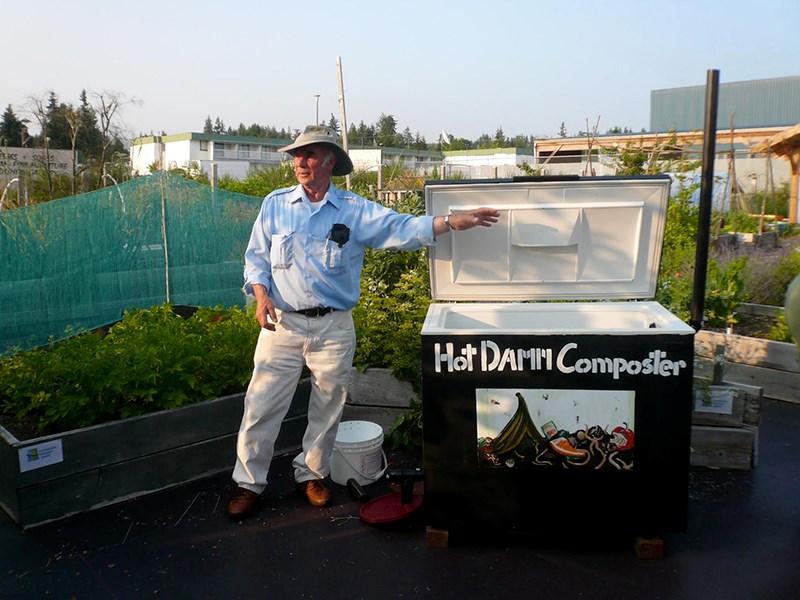The soil has thawed, green thumbs are twitching and seedlings are beginning to peek out of the soil. This is the time of year when Powell River area gardeners are scouring for supplies, plant starts and nutrients for their future veggie patch.
It's a great time to get a backyard composter started, too.
Buying fertilizer can be hard on the wallet, the planet and possibly even to your plants. Store-bought fertilizers can come in a myriad of prices and qualities.
The only way to really guarantee what is going in your soil is to make it yourself. And once you get in the habit of backyard composting, you will probably never break it. It is so satisfying to take kitchen scraps, yard debris and unwanted plants and turn them into something valuable with just a little sweat equity.
Many methods of backyard composting exist. Some are almost hands off, while others require more upkeep.
One of the simplest methods is the pallet box. A series of boxes made from pallets are set up for receiving compostable materials and once a bin is full you can move on to the next while the first bin's contents fully break down and cure.
Other methods include the inexpensive black plastic “Darth Vader” bins, the locally-invented Converted Freezer Composter (open-sourced plans available at LetsTalkTrash.ca), a critter-proof composter made from cement, the more pricey Jora rotating composter, the Vancouver Island Speedibin, and worm bin method, to name a few. Each has its strengths and challenges, so do your research before committing to one.
If you are already a dedicated composter, remember that most forms of composting benefit from four simple ingredients: air, water, carbon and microorganisms. Turning the pile with a garden fork, or even just poking it with a stick introduces air that keeps the good, aerobic microorganisms happy. Adding water during hot spells helps them, too.
A good test is to squeeze some compost in your hand and see if water beads between your fingers. That's about the perfect amount of moisture to keep everything chugging along.
Many gardeners forget to add carbon-rich materials along with their nitrogen-rich kitchen scraps. This fatal error can be corrected by mixing in wood shavings, shredded newspaper or brown leaves. Adding about the same volume (not weight) every time you deposit materials is a good ratio.
If your composter is still not heating up, you may need to kickstart it with some healthy microorganisms. You can mix in manure, or even buy a kit from a gardening store.
If bears or maintenance are a concern for you, remember all residents are welcome to bring up to 20 pounds of compost per visit to the Town Centre Recycling Depot near Rona in Powell River. Staff can assist you with what goes in and what stays out.
Let’s Talk Trash is qathet Regional District’s waste-reduction education program.



